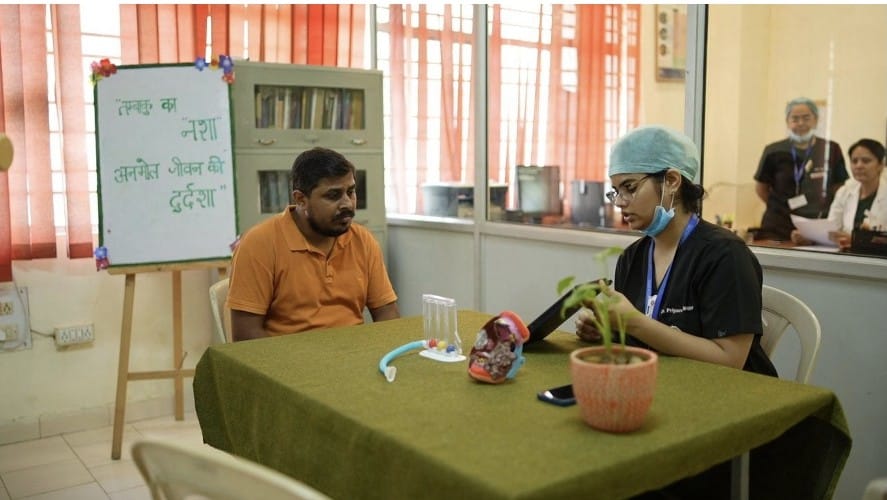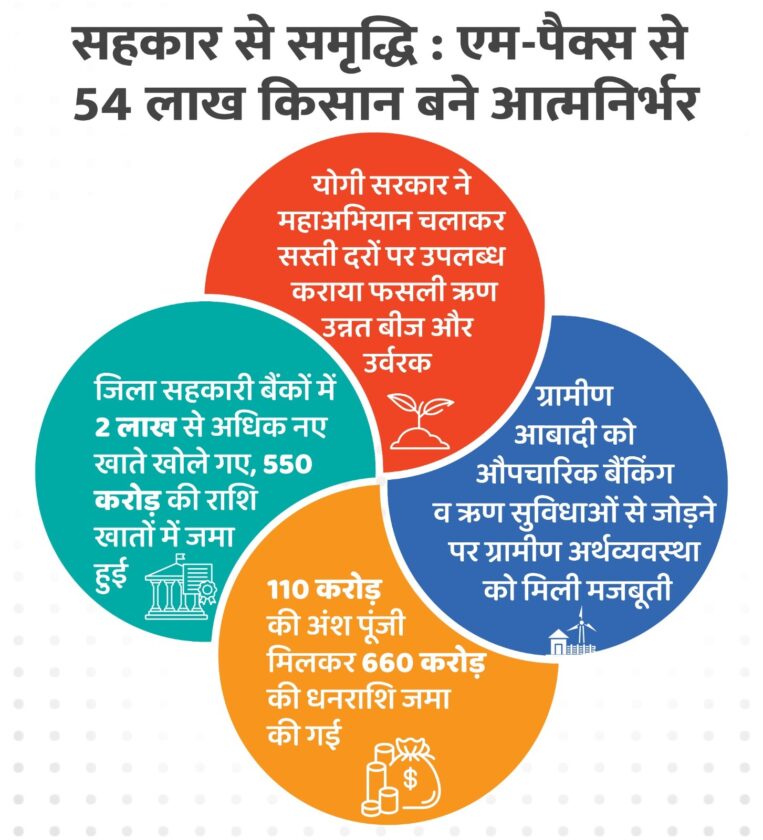Lucknow: Tobacco remains one of the most dangerous public health threats globally, leading to millions of deaths each year. Yet, at Saraswati Dental College & Hospital in Lucknow, a ground-breaking initiative is reshaping how tobacco addiction is addressed. The college isn’t just treating patients—it’s helping them transform their lives. At the forefront of this mission is the Department of Oral Medicine and Radiology, where medical expertise is paired with a deep sense of care and responsibility. The team of Tobacco Cessation Clinic is led by the Head of the Department, Dr. Prof. Sunira Chandra and she monitors all activities of TCC very closely.
The institution has introduced a robust and inclusive Tobacco Harm Reduction Program, which blends behavioural science, early diagnostics, and clinical interventions. From the moment a patient engages with the Tobacco Desk Jockey, they are provided with impactful visual education and compassionate brief consultation. This early engagement helps identify the initial signs of serious conditions such as leukoplakia, chronic oral ulcers, and oral submucous fibrosis, allowing timely diagnosis and treatment.
Following this, patients are guided to the Tobacco Cessation Centre, where professionals tailor quitting strategies based on each individual’s needs. Using a non-judgmental, supportive approach rooted in behavioural therapy, the focus is on motivating patients to take ownership of their health and make positive lifestyle changes.
Technology plays a pivotal role in reinforcing these efforts. Tools such as the Smokerlyzer, which detects carbon monoxide in a person’s breath, and cotinine tests, which reveal nicotine levels, provide visible proof of tobacco’s effects. These real-time results often serve as eye-openers, helping individuals better understand the urgency of quitting.
The program also incorporates cutting-edge 2D & 3D imaging techniques, which reveal hidden internal damage caused by tobacco use, such as bone degeneration, TMJ complications and oropharyngeal damage. Additionally, biochemical tests conducted in the in-house lab—like liver enzyme analysis and hs-CRP measurements—uncover systemic damage and inflammation before symptoms appear.

What makes this initiative unique is its dual focus: providing effective clinical care while contributing to academic research. Each patient interaction feeds into a broader database that supports ongoing studies, helping improve treatment strategies and expand global knowledge about tobacco-related health risks.
Leadership at the institution emphasizes that the majority of tobacco addiction is psychological—roughly 80%—with the physical dependency accounting for only about 20%. This understanding shapes the programme’s focus on mental conditioning, habit reformation, and continuous support.
SDC&H is one of very select few dental institutions in India to actively undertake TCC with strong focus to benefit the affected population. To date, the programme has reached over 16,600 plus patients, each of whom began a personal journey towards a healthier future. For them, this wasn’t just about quitting tobacco—it was about reclaiming their lives.
At Saraswati Dental College & Hospital, tobacco harm reduction is not viewed as settling for less—it’s seen as a second chance. It’s a forward-thinking program driven by knowledge, empathy, and the unwavering belief that a single choice, a single conversation, and a single breath can lead to lasting change.









